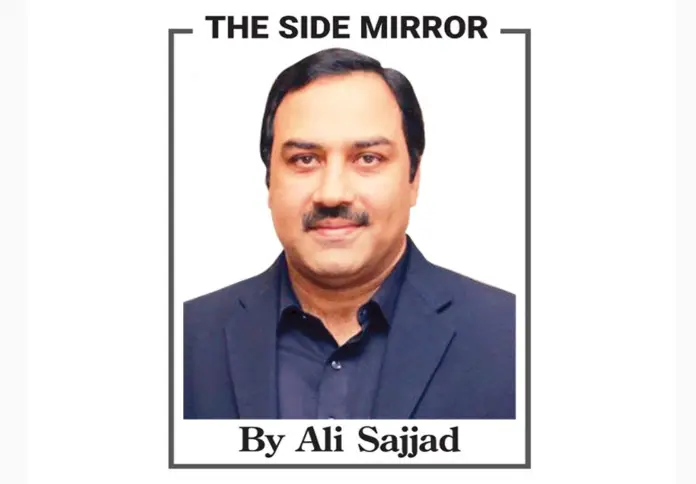As the second week of July is about to end, there is no news about the return or landing of Ishaq Dar.
Former finance minister Ishaq Dar said in June that he may return to Pakistan in July’s second week. I closely follow the moves and words of Ishaq Dar.
Don’t count me as Ishaq Dar’s fan club member, but the ongoing economic onslaughts which have hiked our newspaper’s production cost multiple times makes me one among those who are waiting for Ishaq Dar’s active role in the Finance Ministry.
Ishaq Dar has been in London for over years in self-imposed exile. When he was in-charge of the Finance Ministry, he would be considered as the most influential minister in the cabinet of former prime minister Nawaz Sharif. He remained active, and sometimes overactive, in the government from 2013 to 2017, and is credited with keeping the economy on the right track. His critics often blame Ishaq Dar for low exports, widening trade and external account deficits, and his diehard fans pay him glowing tributes for a strong and stable exchange rate. In a famous duel, when the dollar showed an upward trend, Sheikh Rashid, of Rawalpindi, challenged Dar to control the dollar rate or resign. Sheikh sahib also offered to resign in case he stood incorrect.
Within weeks, the rupee was back to the previous rate, but neither Sheikh Rashid resigned nor Dar demanded so. The list of his achievements which supporters put in is long. Similarly, the detractors are also not short of his policies’ shortcomings. But some undeniable and undisputed facts are: during his term as finance minister from 2013 to 2017, Ishaq Dar steered the government out of the impending balance of payments crisis and put the country on a higher growth rate. The growth rate did not show a sign of sliding as long as Ishaq Dar was in the commanding position.
I do not understand much about the trajectory of Ishaq Dar’s infatuation with keeping the rupee strong, which a majority of his opponents say, pressured macroeconomics.
In his last interview, Ishaq Dar said his plan to return to Pakistan next month (July) is confirmed. Though he was only short of giving an exact date, he hinted at taking a flight in the next 10 to 12 days. Remember, he gave this interview on June 29.
Though a coalition government, led by the PML-N, is running the country, Ishaq Dar does not expect a rosy welcome on his return (if he returns) to Pakistan. He faces a case pending in different courts. He has yet to take oath as a senator.
Right now, Pakistan faces energy, balance of payments, growth and external deficit crises. Incumbent Finance Minister Miftah Ismail has tasked the revenue collectors with going and hunting Rs7,400 billion this year. This is a huge task. The industrial sector is trying to survive load shedding amid a long list of taxes. The textile sector alone is coping hard to meet export orders.
The energy sector has failed multiple times to get LNG consignments booked as European buyers have depleted the stocks. The International Monetary Fund (IMF) has placed a strict review system before releasing the promised cheques.
The public has been hard pressed under the coalition regime due to record high inflation rates. There are reports that the government plans to reduce prices of petroleum products for the next fortnight but the IMF is likely to raise objections.
The international markets have shown fluctuations in the prices of POL which forced the government to reduce the prices of petroleum products by maintaining the levy at the current level.
My editorial team is of the view that the government is moving ahead with the intention of appeasing the voters ahead of the July 17 by-elections for 20 Punjab Assembly seats.
However, it’s not yet clear how the IMF will react.
I am not sure if Ishaq Dar will return or not. I am not sure how newspapers’ production costs will come down.







